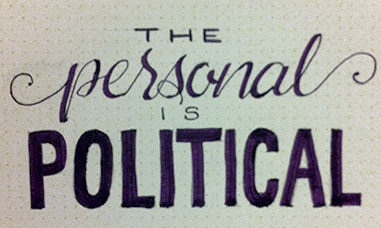This article has been written by Sakhi Shah (Batch of 2017).
I’ve been asking myself (and being asked by others) a lot lately: Am I allowed to forgive someone who I know has sexually harassed or assaulted someone?
I mean, we’ve all done it, haven’t we? Forgiven friends for doing questionable things. Remained friends with people when they said sexist things. Continued to enjoy Neruda’s poetry even when you know he’s written about raping an Indian woman.
All of these choices are easy to justify. After all, I’d never support someone sexually harassing someone but surely my forgiving a friend, or enjoying an author, is a personal choice?
However, the more I think about it the more difficult it becomes to justify. As a feminist woman responding to a person who has committed sexual assault or harassment (and for the purpose of simplifying an already complex issue, let’s assume that you are convinced that this happened and that it happened to someone other than you), your response comes with the following implications:
The first is, as unfair as it seems, that I am only too cognizant of the fact that my opinion is used to invalidate the opinion of other women and other feminists. Since this is a gendered crime, my forgiveness also takes gendered implications. I laughed, so it must be funny. I forgave him, so why don’t you? Why must you take it so seriously? Why must you be so unreasonable?
The second, as a friend pointed out, is the effect of such support or forgiveness, especially public, on the survivors of the sexual harassment or assault themselves. I feel betrayed when my close friends hang out with people I’ve had petty fights with and I can only imagine that a survivor of sexual assault in a system that is already very hostile to them feels this betrayal manifold. Can I reasonably and honestly say that any survivor of sexual assault should feel comfortable even talking to me about their experiences (let along expecting my support in any action that they choose to take) if at the same time they constantly see me hanging out, talking confidentially, or hugging the perpetrator?
The third is that I’m aware that forgiveness is colored strongly by my own biases. Who do I forgive, eventually? While I’d like to think there are several factors that motivate me to forgive based on the personal conduct of the person involved and the amount of responsibility they are taking for their actions and the remorse that they feel, at the end of the day I’m also aware that my forgiveness is colored by access. I forgive those that I cannot construct as ‘the other’. I’m more likely to forgive someone I talk to regularly, someone who is in my class or in my social circle, who is a ‘kid’ or a ‘mentee’, whose side of the story I have had a chance to hear.
This is especially important in the context of justice, whether through the criminal justice system or through an internal inquiry. There are a lot of people I wouldn’t like to see face year losses, or expulsion, or jail time. There are a lot of instances when I think to myself that that person has repented enough and should therefore not be subject to the consequences of their actions. I don’t believe in a retributive criminal justice system. I strongly believe that retributive criminal justice systems sometimes create a cycle of increasing violence and don’t always reduce the instance of the crime itself. However, I also feel deeply uncomfortable saying this on behalf of anyone else. Who am I to say that someone shouldn’t want retribution for what is a deeply personal violation? Who am I to say that it is unreasonable for a survivor to want the perpetrator to realize the consequences of their actions because they believe that if they do not face these consequences now they will believe that they can commit further crimes with impunity?
Who am I to forgive?
It is very easy for me to say that he’s always been so nice to me, but what kind of feminist am I if I feel no empathy for anyone else?
I’ll become a full feminist cliché: my personal is political, and so is my forgiveness.
Does this mean that I am condemned to being an angry feminist stereotype, unable and unwilling to forgive?
I’m not willing to live in a world where people are not allowed to forgive each other, but I also refuse to live in a world where someone is forced to forgive someone who has committed such a horrendous crime against them because of peer pressure. As feminists, we have to find places on this spectrum where we feel comfortable.
I’d like to believe that it is possible to ‘hate the sin, not the sinner’, to condemn specific actions even when they are done by the people that we love. I’d like to believe that it is possible for me to tell my friend, look, I adore you, but what you did was unconscionable. I want to believe that I can call out instances of sexism whether or not they’re by my friends. I want to believe that it is possible to say that he writes haunting poetry but is a horrible human being. I want to believe that there is a way to communicate to survivors of sexual assault that I’m on their side in this even if I cheer for the other person in a football game.
I realize that this may seem overly gray to a lot of you, a compromise that is not authentic to either my relationships or my politics. I also realize that this will require a constant tight rope of ensuring that my public stances come with caveats. It means never telling a survivor ‘but you will ruin his life’, no matter what I feel about the value of his life. It means never telling someone that he may have suffered enough or invalidating the suffering of the person who has been assaulted or harassed. It’s hard work and something that must inform every thought and action that you take.
In our defense, we never said feminism was easy.


First of all, Kudos to Sakhi Shah for writing this. There are so many times when some of us felt like writing similar, but in our time we were so disgusted by the trend that we resigned ourselves to simply being the outsiders in this conversation, as well as seeing this as a battle that couldn’t be won. It must take courage and hope in your peers to put this out, and a huge congratulations for that.
But a couple of thoughts. I was curious about your ending. That feminism isn’t easy. It actually is. Condemning, or at least making your censure of the perpetrator of a sexual assault clear is incredibly important, not just for the sake of the victim who should not feel betrayed, but since social ostracization of those who commit such acts, is in fact, one of the more effective ways to discourage such behaviour. As things stand, perpetrators of sexual assault are still celebrated and loved within their communities, and those who start out as harassers end up being emboldened to become rapists. That lack of isolation from family and friends that follows publicising of an incident means that while there may be strangers condemning the person, their social network remains intact, and short of a criminal prosecution, there is no other incentive to change behaviour. Why would you? Someone accused of sexual assault a few years ago experienced little to no consequences from their own friends group, and as a result, didn’t even bother to apologise to the victim.
Secondly, and really importantly, anyone can be nice to anyone. Dictators love their families. So do terrorists, and criminals of all colour. The fact that they are nice to their friends is indicative of nothing, not of a moral code or an admirable personality. It simply means that they are aware of survival techniques. and know that they need some people on their side. Finally, from the experience of someone who has come across quite a few of such borderline harassers / assaulters, if they did such an act once, there is not just a high possibility that they will commit it again, but the odds are high that they are callous people in general. Committing an act of sexual assault fundamentally requires them to dehumanise the victim, see them as a piece of flesh and nothing more. If they can do that to one victim and manifest their leaning in the form of sexual invasion. these are not people who are going to care enough about others to be kind / upstanding / charitable / loyal etc. Its rare that the friends are losing someone who is actually worth it. Hope this makes your stances on feminism easier to bear. And don’t worry about the cliche. there are plenty of people out there ready to accept the feminist cliches as necessary in this battle.
Beautiful post.
Let’s suppose for a moment that a guy had written this. In such a scenario, would he be deemed as chauvinist? This is a genuine query posted in the hope of receiving a reasoned reply.
(This is a guy putting up this query).